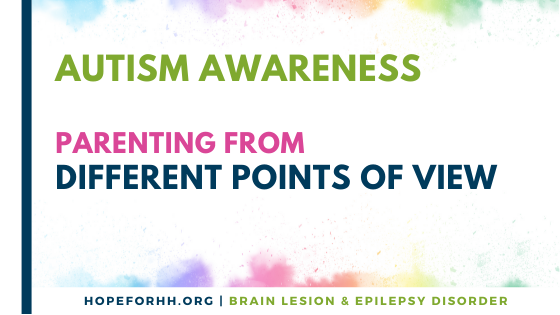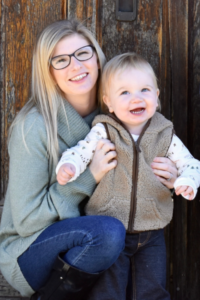
Parenting from Different Points of View
When your child gets diagnosed with both an ultra-rare syndrome and autism, many mixed emotions are bound to arise between you and your child’s loved ones. I want to bring your attention to this because I feel as though it’s not talked about enough.
When my son was diagnosed with autism, we were given numerous amounts of resources. This included the transitioning period from Early Intervention (Birth to 3) to Preschool Special Education, pamphlets of, “Now what?” multiple non-profit organizations that were there to help and support families, and many more. But what was not spoken about too often was how common it can be for two parents or caregivers to see different symptoms (or even see the same symptoms but differently) of their child through their eyes. My husband and I have always said to each other that no matter what, we will love our children unconditionally. Whether they had disabilities, were part of the LGTB community, medically complex, you name it, nothing would change our love for them. However, we never really discussed how different our thoughts could be during these difficult times of the diagnosis and even after being diagnosed.
Of course, being a mother, I do have my gut instincts and sometimes I can think too much into simple things that go on with my children. When my son was just 12 months old, I had the thought that he was autistic. He had gone through so many procedures that I knew could set him back, but my gut told me he was autistic, and that was totally okay. My husband disagreed with me, in his eyes he thought that Jaxon was just a late starter, and because of the procedures including bacterial meningitis that this is what was causing him to fall behind.
During endless doctors’ visits, early intervention reviews, and preschool testing which included speech and OT, we always seemed to disagree about our son’s milestones. Unsurprisingly this caused great tension between the both of us. We started to warn everyone that, “we agreed to disagree” because at first when we would disagree with each other, things became extremely awkward during the visits for the providers.
I bring this up to you because we are now able to talk things through and we found a way to listen to each other’s concerns respectfully. Don’t get me wrong, we still go head-to-head sometimes because we both love our son unconditionally. Looking back, we can both see that we were trying to do what was best for him. If you can relate to this story, I will start by saying this… YOU ARE NOT ALONE. I urge you to be open with your partner, listen to their side of the story (as hard as it is sometimes), and try to see their perspectives and point of view. Also, there is no shame or harm in getting a counselor to be your middleman if you two really just cannot see eye to eye. Your child needs BOTH of you to advocate and fight for what is right for them. Please do not let a diagnosis tear you two apart when the child needs you the most!

Read our previous blog from our Autism Awareness Series
- First Signs of Autism Spectrum Disorder in an Individual with Hypothalamic Hamartoma Syndrome
- Differential Diagnosis for those with Hypothalamic Hamartoma Syndrome and autistic characteristics
- Overlapping Characteristics of Hypothalamic Hamartoma Syndrome and Autism Spectrum Disorder
Read more about blog author Michelle and her son Jaxon:





